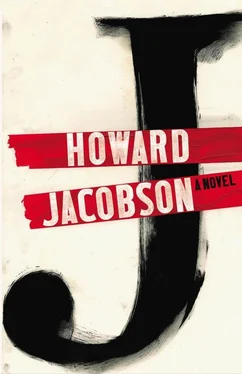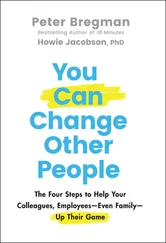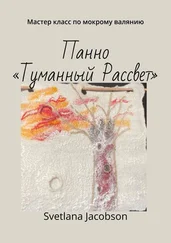When a thing is heartfelt it stays with you. ‘ Ich hab’ im Traum geweinet’. . ‘Où sont les neiges d’antan’ . . You don’t forget sentiments like those. They express the quintessence of regret. But quintessence of scorn can melt your bones as well. Like those lines about shitty magma. . the termites being everywhere, selling everything, keeping everything, destroying everything, weaving their web, was it, yes, weaving their web in the shadows . . then eliminating, dissuading, pursuing whoever might cause them the least little bit of umbrage — that’s the phrase — to a final bloody course of reckoning, tee-dum tee-dum. . The least little bit of umbrage . Can there be a more telling description of the disproportionality of Kevern ‘Co-co-cocksucking’ Cohen and his kind, can there be a better atomisation of their crazed thin-skinned sensitivity, than that? The least little bit of umbrage. That imagined sliver of a slight in retaliation for which they’d have shaken the whole planet to its foundations. . if we’d let them.
It would come as no surprise to learn the snake believes he’s been caused the least little bit of umbrage by me, though where and how I can’t imagine, and deny all charge and knowledge, but believes it anyway, I bet he does, in return for which he deposits his slime in my sweet, gullible and far too forgiving, not to say slime-receptive, Demelza. He will treat you as he’s treated me, I tell her. They are incapable of gratitude. . But she denies all knowledge of him. You think I’d want to be with another man after you, she says. You think I’m that big a fool? But my mind races with suspicions of them both and that’s enough for me. On my hands and knees I pursue the spattered trail of rotten juices to my bed.
That I have no recourse, short of a private feud which, as the older and more easily hurt party, I am sure to lose, has been made plain to me in a communication from up there. They don’t exactly confirm my suspicions as to Demelza (though they blaze them forth as to everything else), but the warning is unequivocal: stay away. It’s actually even blunter than that. You have made a balls-up, move aside. No mention of Mrs Snake but I take the injunction to include her. Stay well clear of them both. Pretty much what I told Detective Inspector Gutkind. So you could say that in death he must be enjoying his revenge. As for when I will be enjoying mine, God alone knows. I am not, anyway, to have the consolation of confronting either of them. Not a cold word into his ear, not a warm whisper into hers; no bite from those mandala mandibles; no last sniff of her paper flowers.
My hand is forced. I will away to beauty. .
No, not Rozenwyn Feigenblat. The beauty of natural things — tidal flats, sunsets, unsullied by all the subtle demonism of life and thought. .
iv
Ailinn Solomons, looking at the moon, and listening to her jumping heart, wondered at what was happening to her. She had returned, briefly — she didn’t want to leave Kevern on his own for too long — to Paradise Valley where there were still things to find out, sort out, have out, and was sitting on a cold mossy bench, hugging herself against the chill damp, listening to Ez clattering about rather obviously in the kitchen. ‘Do I feel any different?’ she asked herself. Ez had been lending her books relevant to that question, or at least fragments of books, dog-eared, singed, defaced, some of them crayoned over as if by a class of three-year-old delinquents. Although they purported to have been written — whenever it was they were written — from the inside, by those in the know, or at least by those who knew others in the know, each work, no matter how little of it there was, contradicted the one before. It was her forebears’ austerity of conscience, according to one writer, that had always troubled humanity and explained the hostility they encountered wherever they went. They demanded too much. They set too high a standard. A second writer understood their defining characteristic as a near irresponsible love of the material world, and it was this that had landed them in hot water. Offered the spirit, they chose matter. Offered emotion, they chose reason. This one said they were deeply pious; that one found them profoundly sacrilegious. They were devoted to charity, yet they amassed wealth regardless of how they came by it. When they weren’t consumed by self-regard they suffered a bruising sense of worthlessness. They saw the universe as a reflection of the God that loved them above all people, but moved through it like strangers. When she came to the alienation they felt in nature she recognised herself at last. She had never been comfortable on a garden seat in her life. She disliked the damp newsprint smell of vegetation, detested snails and worms, felt threatened by the icy indifference of the moon, and feared the irregular rhythm of her heart which also, surely, was a thing of nature. So while she didn’t feel any different after reading all Esme had given her to read, she at least understood why she felt the same.
Esme called out to her from the kitchen. She had, since morning, been making chicken soup to an ancient recipe she’d found in a cookery book that must have been as old as creation and wondered whether Ailinn wanted to eat it inside or out. Ailinn didn’t want to eat it at all, so reverentially had Esme prepared it, with so much sacrificial ardour had she dismembered the chicken, so full of spiritual intention was her dicing of the carrots, so soulfully did she look at her through the steam rising from the pan, but decided that as she had to eat it somewhere she would eat it out. Compound the discomfort.
They ate silently for a short while, balancing the soup plates on their knees. Esme sneaked looks at her.
‘Are you enjoying it, my love?
My love !
‘Am I meant to?’
‘Well I’ve made it for you in the hope you will.’
‘No, I mean is it part of my preparation?’
Esme winced.
‘Will it count against me,’ Ailinn continued, ‘if I don’t? Will it prove I’m a fake?’
‘Well I won’t tell,’ Esme said.
‘Forgive me, I am not able to finish it,’ Ailinn said at last, putting the plate on the ground between her ugly feet. ‘There is something more pressing than soup.’
Esme started in alarm. It irritated Ailinn how easily she could worry her. She had only to express the slightest disquiet for Esme’s entire system of defences to be activated. She’s too close to me, she thought. There’s more of her inside my skin than there is of me.
‘What is it that’s more pressing?’ Esme asked. She could have been asking how long Ailinn had known she only had an hour to live.
‘Matrilineality,’ Ailinn said.
‘Could you explain that?’
‘Matrilineality? After all you’ve said to me on the subject! My love’ — take that, Ailinn thought — ‘it’s you who are the authority.’
‘No, I meant could you explain what bothers you about it.’
So, Ailinn, shivering under the cold moon, did.
If fathers bore so little responsibility for the defining characteristics of their progeny, as Esme said they did, in what sense were they their progeny at all? There seemed to be a carelessness here that belied the otherwise strict code of kinship into which Ailinn had now been drawn. Had it really mattered not at all what sort of seed her father had put into her mother, and her grandfather into her grandmother? Was it merely incidental? She felt the pull of contradictory impulses: pleased to be incontrovertibly what she was, but disappointed she had got there, so to speak, so easily, with so few caveats as to fathers. In an odd way it devalued her new-found affiliation. ‘I would want a child of mine to be validated on both sides,’ she told Esme.
Читать дальше












